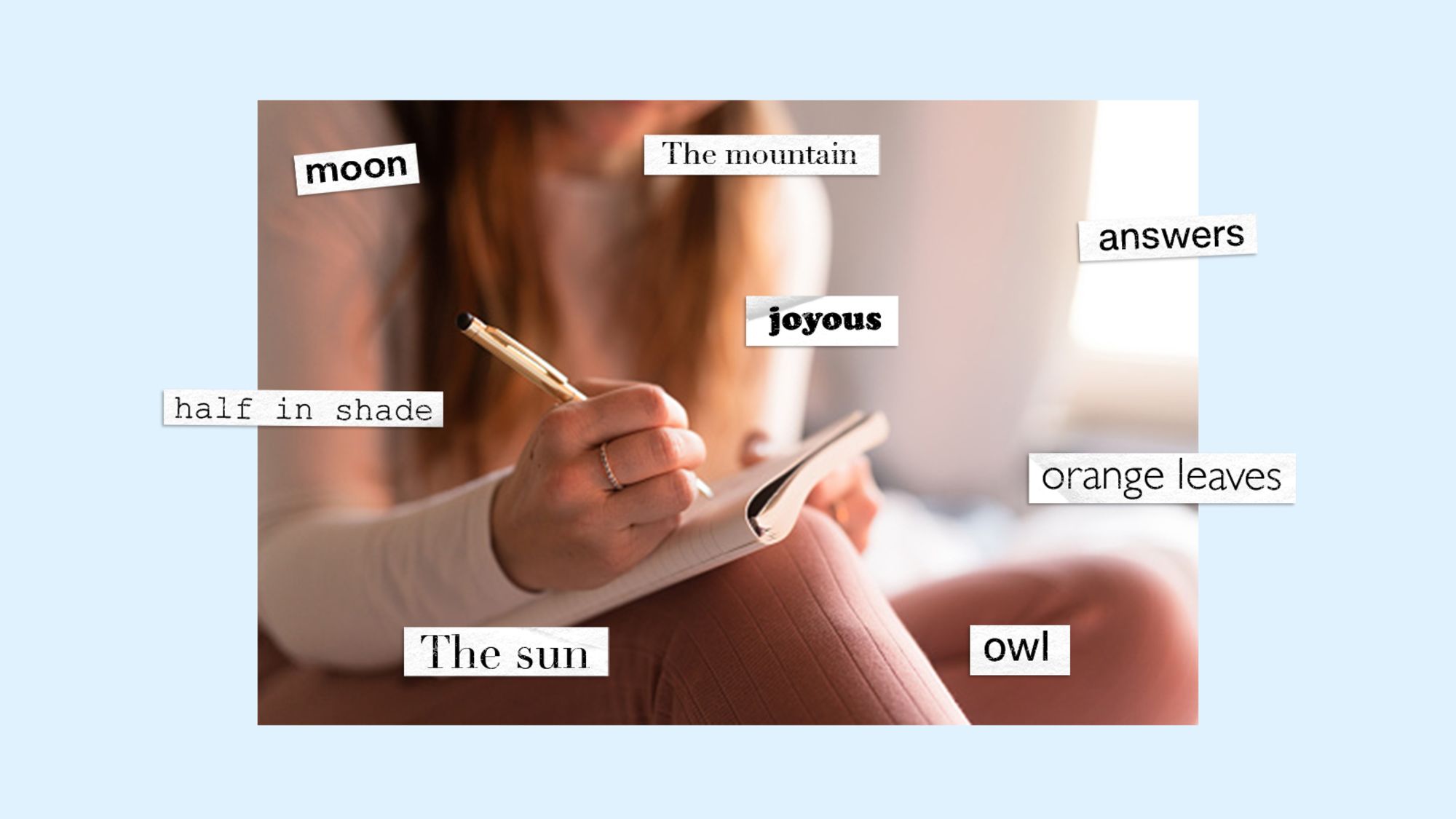Editor’s Note: Tess Taylor is the author of five collections of poetry, including “Work & Days” and “Rift Zone.” She is the editor of the anthology “Leaning Toward Light: Poems for Gardens & the Hands That Tend Them.” The views expressed here are her own. Read more opinion on CNN.
For me, writing a haiku a day began as a practice on my birthday, October, 2022. It was a hard fall. We’d all made progress digging out of the most difficult pandemic days, but my life as I’d known it was derailed. My husband and I and our kids — then 5 and 9 — were still home together all the time: My son attended zoom-school with a pod-mate under a sun-tent we pitched in the driveway. Our kindergarten-aged daughter was at a provisional outdoor school that got cancelled every time there was a fire. There were, in fact, many terrifying fires in California in the fall of 2021.

The days felt uncertain and hard. I felt wrenched out of my sense of self and overwhelmed by grief. And I struggled to make sense of the days. Fatigued and frazzled, I felt exhausted, angry, numb, foggy.
As my birthday rolled around that fall, the idea of writing a haiku a day was simply a way of promising myself that that day, I’d steady myself make note of — ha — just one thing. No matter the day, I was sure I could find a way to write down one sentence, one spattering of roughly 17 syllables.
I decided I was less into the idea of counting syllables exactly, and more into a description of haiku I’d read in the introduction to some wonderful haiku translations by the poet Robert Hass: Somehow I’d get down some phrases that acknowledged the season of the year or slant of light and also painted an image from the day.
Here are a few examples by Basho:
Autumn moonlight—
a worm digs silently
into the chestnut.
A caterpillar,
this deep in fall—
still not a butterfly.
The sea darkens;
the voices of the wild ducks
are faintly white.
Using this Basho-esque model as a rough guide, I set off on my adventure. The first day it rained. The next day the year’s first green sprouts arrived in the vacant lot behind our house. The air smelled like wild fennel. I noticed a local church steeple reflected in a still puddle. I noticed the silence after rain.
The assignment to notice something, no matter how small, and often made better by being small, helped me. I wrote about horsetail clouds at dawn. I wrote about the clatter of a midnight storm. I tried in these moments simply to be observant, curious. Little by little my haiku practice seemed to help me make space to hold the difficult weeks, giving me time each day — just a few moments — for imagination, observation, and tenderness.
A rough year later, in January 2023, as I was beginning this column about poetry here at CNN, I invited you, the readers here, to explore this practice as well.
I hardly knew what to expect, but the response was overwhelming. The article became one of the most commented on in 2023. I received notes and haiku all year long, from people telling me how much the practice of shaping a few words meant to their daily lives.
At the end of 2023, we put out a call for haiku, thinking we’d run another New Year’s column. This month, in response to that call, I received over 60 pages of responses — from hundreds of people. Some people sent in testimonials about how much the practice had meant to them.
Writing poems had helped people cope in many ways. A group of women who refer to themselves as “The Squad” share haiku texts amongst themselves as a way of staying connected, even in a year of losing friends to cancer, caring for aging parents, taking care of many kids. Tink Boord-Dill wrote in that liked that he loved writing haiku because it was daily creativity without performance pressure. Elaine Questell said that her haiku practice became a way of doing a daily devotion, of adding to her “spiritual journal.” Carla White wrote haiku as a way to be present during her husband’s hospice and final days.
Many people found that writing a few lines a day just helped them feel and notice, just a little more. Robin from Maryland wrote “the daily writing of seventeen syllables quickly created a rhythm to my thinking and even my walking…. As a result I paid more attention to the world. Wandering also became wondering.” Paul Nelson continued in a practice of writing what he called “an American sentence” (an idea from the poet Allen Ginsberg); seventeen syllables with no line breaks.
Poems wove new bonds between loved ones. Several people wrote that they shared their haiku journals with close friends, and plan to do so again. Some found that writing a few lines of verse was a new way to be intimate. Linda Neves found that she could share her haiku with a dear friend of 60 years… “a way for us two rather stoic people to be sentimental with each other in ways we never have.” A number of people, such as Candace Waldron, “found the practice so centering they plan to continue.”
In these challenging days, when we face down war in the wider world, and enormous civic tension at home, who could argue with a creating more space for bit of observation, centering, attention, and complex joy? Here are just a few of the haiku you wrote. You watched the moon, heard birdsong, grieved, and you collectively ranged from the slightly goofy to the philosophical. Your haiku showed a community savoring its world.
Coyote chorus
Death cry or joyous moon song?
A barred owl answers
—Linda Neves, Virginia
The sun hides in clouds
While I kneel in orange leaves
Searching for your ring
—Brad Taylor, Maryland
Come to love these crows
These gossipy know it alls
These mobbers of hawks
—Nancy B., New York
The mountain,
Half in sunshine, half in shade
Did I come too late
—Philip Chan, Quebec
The day on the trail,
The trees, the wind, the silence
I love my office
—Bill, Alaska
Sometimes late at night
When it’s very quiet I can
Hear the plants crying
—Carolyn W., Arizona
Deep running rivers
Can remain a mystery
Even to the trout
—Alyce Guynn, Texas
Once again we meet,
Spoon dipped in peanut butter
My crunchy old friend
—Susan B.
Weighted down by war
and winter, I fed a robin
some purple grapes
—Karen Jacobs, Ohio
We didn’t return
to the moon for fifty years
Weren’t invited back
—Stephen Schwei
Being a diva?
Making an entrance tonight?
Where the hell’s the moon?
—Derek Thaczuk, Ontario
As for me, I dropped my practice for a while, but seeing this web woven in poems, I’m inspired to try it again. And, I’ll keep thinking about ways to talk about why these practices matter, in the face of a deeply uncertain world. For now, belated happy new year, and thanks for watching the world together.




